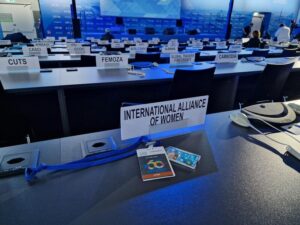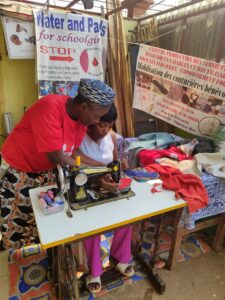ECE countries have made progress towards gender balance in power and decision-making, but women remain a minority in national political leadership. In 2014, in the region as a whole, women amount to 25 % of the Members of Parliament and 28 % of the ministers. This is higher than the world average, but far from 50/50. Only 8 % of the presidents and prime ministers in the ECE are women.
Within ECE there is great variation. More women obtain political positions in Western than in Eastern Europe. In the West there are 29 % women MPs and 31 % ministers, while there in the East are respectively only 19 % and 15 %. Of the 7 women presidents and prime ministers 5 are in the West and 2 in the East. There are also marked differences within each region. In the West, Andorra and Sweden top the list with respectively 5o % and 45 % women MPs, while Cyprus only has 13 %. In the East, Macedonia and Serbia have the most with 34 % women, while Hungary is down at only 9 % (IPU and UN Women: Women in Politics 2014, www.ipu.org).
I have during recent years studied the women presidents and prime ministers around the world (73 women in 53 countries 1960-2010, Women of Power, Policy Press, 2014), and it is clear that several factors interplay to make it possible for women to become national leaders. To achieve gender balance in top level decision-making positions, it is necessary to change institutions and arrangements to form what can be called a “women-friendly democracy”. This is characterised by:
- A democratic political system with an open and inclusive culture and democratic political parties, representative decision-making bodies and good governance;
- An active civil society with vocal women’s organisations promoting women’s rights;
- An efficient state that can defend the interests of the community, protect human rights and promote social equality; and
- An economic and human development that can ensure women as well as men satisfactory income, education and health.
Among important short-term measures I would recommend:
- Governments should take special measures to ensure that the UN Women’s Convention and the Beijing Platform for Action are properly known to the general public and show the consequences for tangible policies.
- In accordance with the Women’s Convention and the Beijing Platform for Action governments should provide financial support and societal opportunities for women’s organisations and networks to participate in political deliberations at all levels and promote feminism and genuine gender equality.
- Governments should increase social scientific research of the political system, including gender dimensions, and in particular evaluate the political culture and the role of parties in shaping an inclusive democracy where women can promote their interests on a par with men.
- More specifically, governments should consider and if necessary revise the electoral system to make it more women-friendly: replace simple plurality with proportional representation or mixed systems, and adopt “critical measures” such as stimulation programmes, training, support groups and effective quotas for women.


